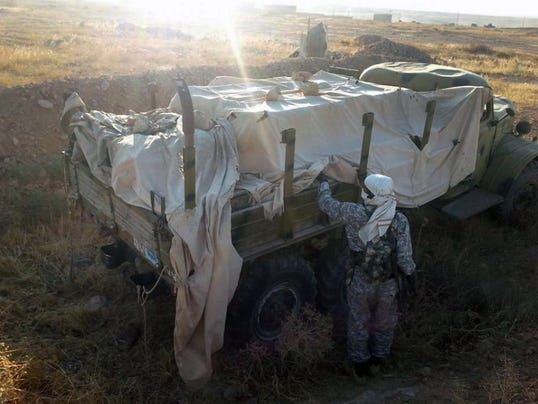
After U.S. planes bombed its forces in Iraq, the jihadist juggernaut that calls itself the Islamic State threatened to attack Americans "in any place,'' adding for good measure: "We will drown all of you in blood.''
For now, facing a multi-front war and bombs falling on their fighters' heads, the Islamic State's leaders probably lack the time and opportunity to plot a strike on the U.S. homeland.
That could change if thousands of fighters with Western passports return home, terrorism analysts warn.
"Right now, they have plenty of other things to worry about and bigger fish to fry,'' says Mia Bloom, an expert on suicide terrorism. But "everybody's worried about what happens when these guys come back'' – especially after the U.S. bombing.
The Islamic State, which emerged from the Syrian civil war, has conquered a swath of Iraq and Syria and governs the region under an extreme form of Islamic law. Thursday, Defense Secretary Chuck Hagel called its threat "beyond anything we've seen."
Many Americans have been troubled by the Islamic group's military victories, outraged by its atrocities and startled by its ability to recruit fighters from Western nations. The video-recorded beheading this week of journalist James Foley has made some wonder whether the jihad that swept from Syria into Iraq could reach America.
An attack could come later from returning fighters, experts say, or sooner from Americans who've never been to the Middle East but are inspired by Islamic State propaganda.
But the thrust of the Islamic State's polished online recruiting pitch is to come on over and join the fight, not to stay home and plot terrorism.
In videos featuring fighters such as Canadian Andre Poulin, the recruitment message is clear, says John Horgan, a UMass-Lowell expert on terrorist groups: "There's a role here for everybody.''
Although the Islamic State has eclipsed al-Qaeda on the battlefield and on the Internet, that doesn't necessarily mean it's better at promoting terrorism long-distance, says Michael O'Hanlon, a Brookings Institute foreign policy and security analyst: "It doesn't mean they're better bombmakers than al-Qaeda.''
He said there are limits to what even social media can accomplish. Working long-distance, without the "brainwashing and personal relationship'' usually required, "it's not easy to get people to kill themselves, or to do something that could get them killed.''
source:http://www.usatoday.com/story/news/nation/2014/08/21/islamic-state-jihadis-foley-iraq/14408951/

